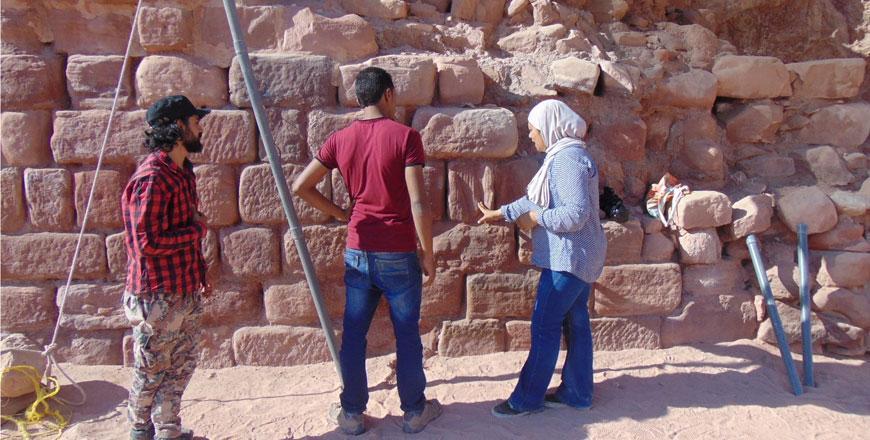Record added successfully



AMMAN — In order to solve an outdated approach to cultural research management (CRM), a local NGO recently decided to build and manage a vocational training programme that would directly involve local communities.
“Currently the structure of archaeological and CRM projects in Jordan is still affected by the persistent legacy of the colonial past: foreign missions come into the country with their agendas, their experts and an army of graduate and post-graduate students providing cheap labour as they are prepared to enter the profession,” noted Maria Elena Ronza, one of the members of the Jordanian NGO Sela for Vocational Training and Protection of Cultural Heritage.
In 2018, Sela, in cooperation with the Department of Antiquities of Jordan (DoA), launched a pilot project to establish a new vocational, skills-based approach to heritage management and preservation within Jordan.
“The project is made possible with the support of Drosos Foundation [based in Zurich],” Ronza continued.
By working closely with the DoA, universities and other key stakeholders, the initiative seeks to create the legal framework to transform the current informal archaeology employment sector into a “formalised one with agreed-upon professional standards and certifications, at both the vocational and academic level, and to train and employ Jordanians”, Ronza added.
“One of two thematic priorities of the Drosos Foundation is to promote economic independence,” said Carole Gürtler, the head of Department Levant, adding that Drosos does it through supporting a variety of partner organisations.
The Swiss Foundation in Jordan has supported six different projects in this field, “however, Sela’s project for the time being is the only one that aims at transforming and restructuring a whole sector”, Gürtler highlighted, noting that other projects also seek to provide on-the-job training and certification in vocational professions, but in different sectors.
“We are very happy to have been able to identify as a partner a locally anchored organisation that already has several years of experience in training and placing technical staff in the CRM sector,” underlined Regula Kaufmann, a programme manager.
Sela’s understanding of the challenges locally sourced staff face is a strong asset for the Drosos Foundation’s project, Employment Through Heritage, she explained, adding that the goals they set for this project are ambitious.
“We believe nevertheless that any progress towards achieving those goals will make a real difference for the people seeking employment in this sector,” Kaufmann stressed, saying that it is important that on-the-job experience and skills gained are valued and recognised by future employers.
To achieve these objectives, Ronza explained, Sela proposed three key points: developing a formalised CRM employment sector, creating a corps of formally trained and certified Jordanian CRM jobseekers and employment of certified CRM personnel by Sela and the Community of Practice.
The Drosos Foundation very much values the creation of opportunities for young disadvantaged people in any sector, emphasised Kaufmann.
“We believe that Sela’s Employment through Heritage Project offers the unique opportunity to invest in building up in-depth and on-the-job professional training which allows the trainees to obtain practical skills and access better jobs as a result,” she said.
Source: www.jordantimes.com